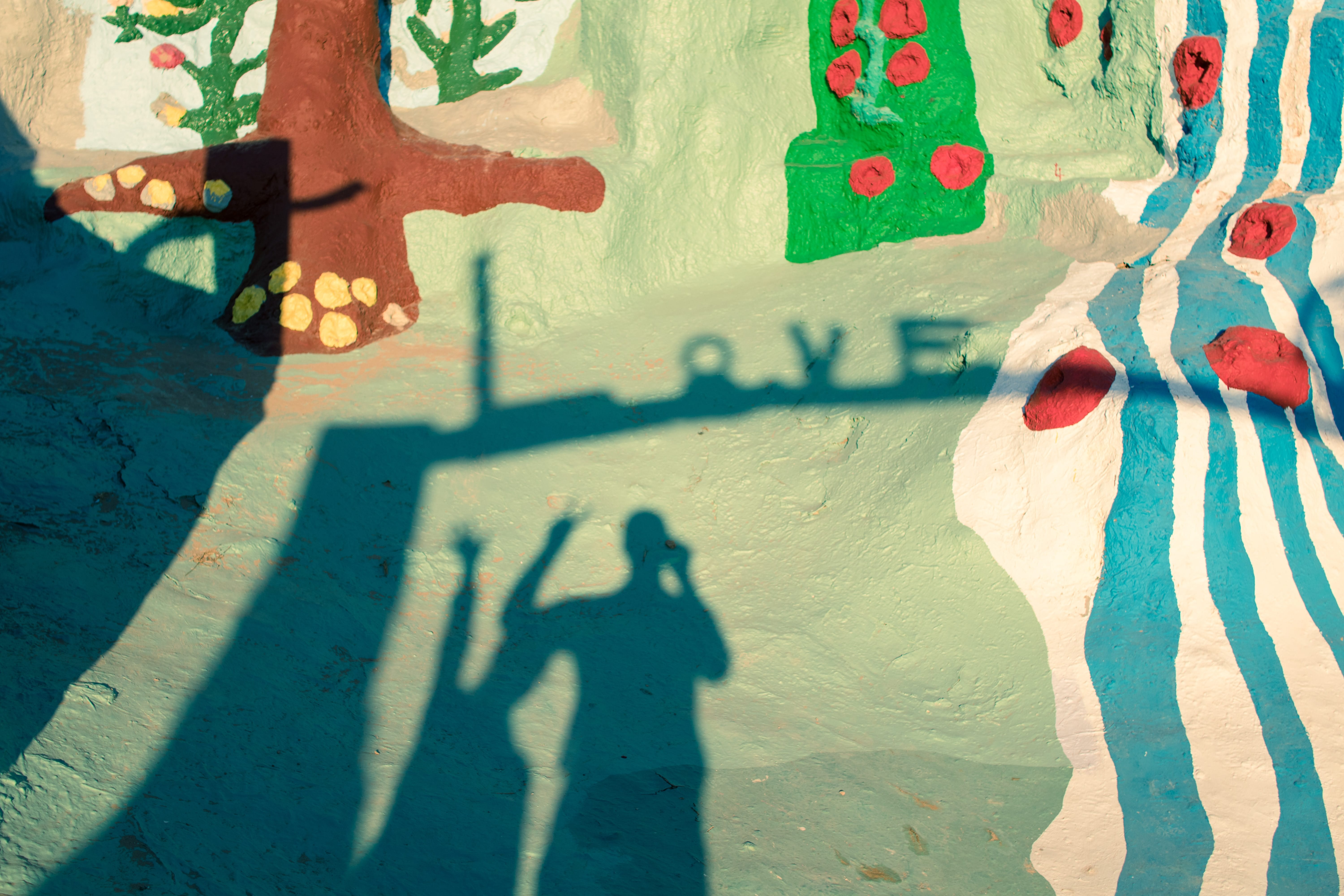
There’s the textbook definition of a word, and then there’s the story of it. Theology degrees or no—you say the word “sanctified” and you take me right back to seven years old, potlucks and Bible quizzing at the big brick Church of the Nazarene.
I was small and the word seemed big, heavy and important—but also nice and kind of glowy. Legs dangling off the ugly greenish-bluish chair in that wide sanctuary, I learned “sanctification” meant the Holy Spirit and many, many years could make you sinless—could make you perfect.
Who knows? Maybe the day I learned such a word was the day I got myself hooked on religion.
I wanted to know what it was like to be Sanctified, but they said perfect people are too humble to know they’re perfect, so there was no one to ask. I probably asked God sometimes: would you just forget how to sin? Or at least never really consider doing it? How perfect is perfect? Like, if someone near you was about to sin, and you failed to stop them, would you lose your Sanctified badge? Also, wouldn’t it be just a little boring to be Sanctified? Like you’d beat the final level of a video game, or read all the books on your shelf?
Those concerns aside, I figured that if getting Sanctified took so many years, me and the Holy Spirit had better get started.
I didn’t obsess over sanctification as much as I internalized the idea at my core, where it had snapped perfectly into place next to my tiny perfectionist soul. In fact, I hardly thought about Sanctification at all after we moved away from the Church of the Nazarene, and I even learned that plenty of Christians think the whole idea of Entire Sanctification is pretty wacky. It didn’t matter; I didn’t need to think about Sanctification anymore. The pursuit of perfection was a part of me.
And I’m not sure it will ever go away.
No matter how far I travel away from those Nazarene potlucks, it will remain. The part of me that, had I been born in the Middle Ages, most definitely would’ve become a nun. There will always be this vision of a better self, who gives generously and looooooves praying and says astoundingly wise things to people on buses and laughs at herself all the time, and who is loved by babies and animals and smiles beatifically at people and makes them feel like they’ve been visited by Oprah herself.
Maybe tomorrow I can be a little bit more like her.
And the thing is, I don’t even know if I believe in Entire Sanctification at all anymore; I’m pretty sure I don’t. I’m pretty sure if anyone has ever made it to some sort of mountaintop of sinlessness, they fell right off as soon as their husband left his dirty socks in some weird-ass place again. I’m pretty sure the mountaintop of sinlessness would be a lonely place to dwell.
But whatever I believe about theology, I definitely believe in that better, beatified me.
Only now, after all my church and studying, she’s gotten even better. Now she’s not only saying wise things and radiating internal beauty, but also carrying a picket sign and growing organic produce for homeless people and patiently explaining whiteness to white people because she remembers the old days, back before she solved all her own riddles of racism. And classism. And homophobia. And ageism. She also exercised today, didn’t forget to email you back, never lets anyone get away with catcalling her, and writes every day whether she feels like it or not. And she edits with fervor, too.
It turns out, Better Me long ago morphed into a monster—but only lately have I begun to realize it. Only lately have I seen her for the obnoxious, unattainable, plastic tyrant that she is. Because it’s hard to see your idols for what they are.
Even before Better Me turned grotesque, she’d been an innocent-looking but greedy little god. That vision of myself consumed all of me and demanded more, then more, and more.
I’d gotten the impression that more and more and more was what it meant to be Sanctified. That of course no one could ever achieve everything the Best Good version of ourselves would do; but getting Sanctified would mean you’d tried.
Because of Jesus’ infinite power and love, the argument went, you can be and do it all. Therefore you should be and do it all. For everyone. Today.
It has its own internal logic; only the harder I ran, the farther away that finish line seemed. The more I helped the world, the worse it got. The more I tried to do the right thing, the worse I got. Perfection promised me peace; but in reality, there was never any rest.
Meanwhile, with so much work to do and Bible to read, there was hardly ever any time for Holy Spirit. Not until Better Me and Better World had become a menace, an unbearable burden, a constant drain on that light and kindness I thought I was trying to shed to the world—not until then did I finally ask Spirit to give me some hope. And here is what She said:
Because of Jesus’ infinite power and love, there is nothing you have to be or do before you and this world can be fully redeemed.
Nothing.
And as I enter into an unfamiliar stillness, the practice of receiving this mad, scandalous outrage of grace, Spirit gives me back that childhood dream of being simple, humble, good, and kind. Only the fulfillment of that dream, she whispers, isn’t a matter of striving and puzzling and discipline that tries to substitute itself for love. No, the fruits of the Spirit wait on the other side of rest; they’re borne by discipline that shows itself as gift; they’re found along the way, walking out a calling in confidence—not driven by a fear of inadequacy.
Only months ago it would have seemed foolish, but now I’m in the midst of an experiment: I have erred long enough on the side of doing things myself. It’s time to make room for Spirit to work—maybe in secret, maybe unglamorous. It’s time to do more and more and more nothing. More delighting. More waiting. More playing. More of the restful rhythms of love, as strong and sure and inevitable as the mountains, who neither strive nor strain; and yet I know, somehow, they give and pray and laugh at themselves with all of Spirit’s might.
 I’ve made this admission in many times and places, but here it is again:
I’ve made this admission in many times and places, but here it is again: I am all about self-help.
I am all about self-help. 


